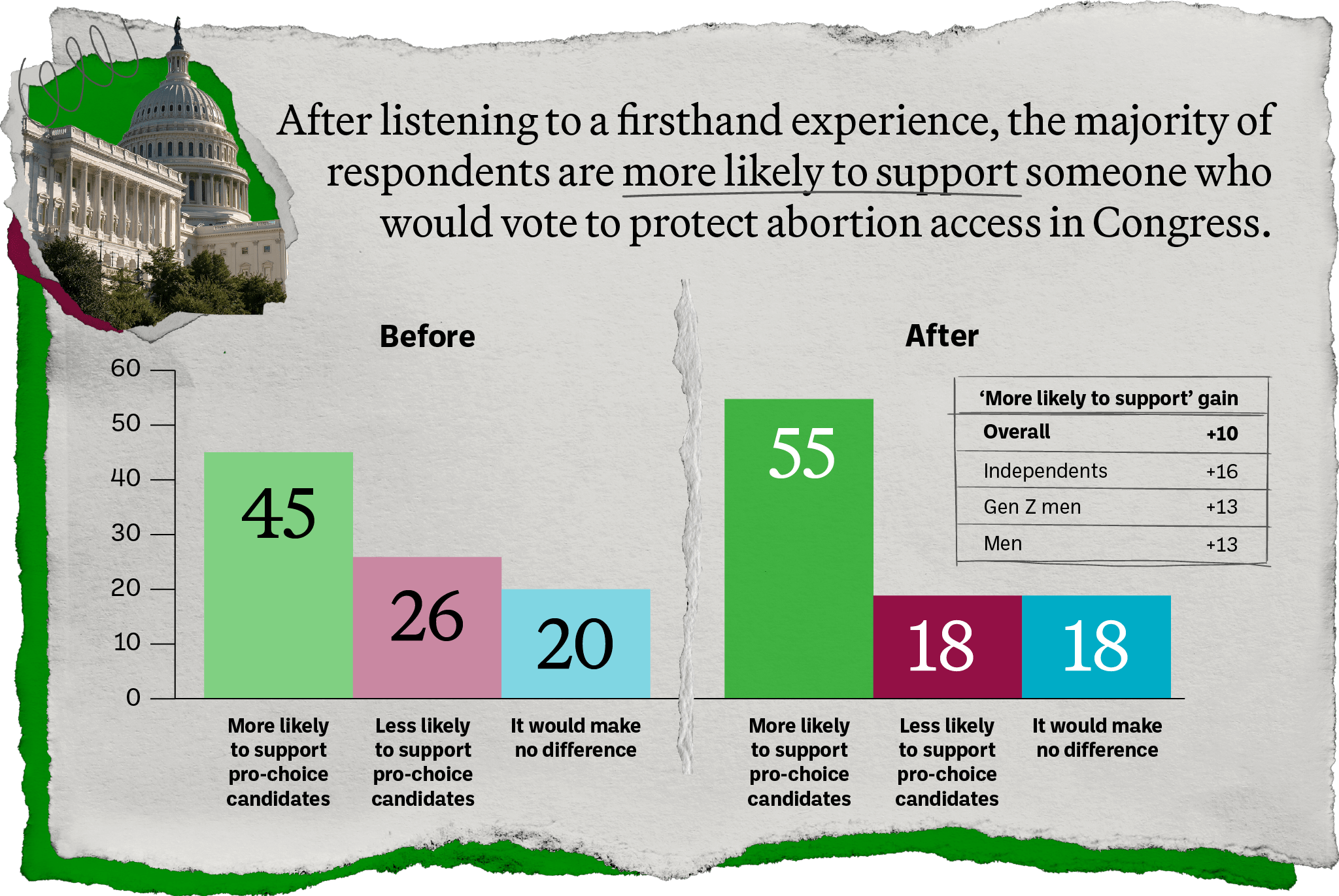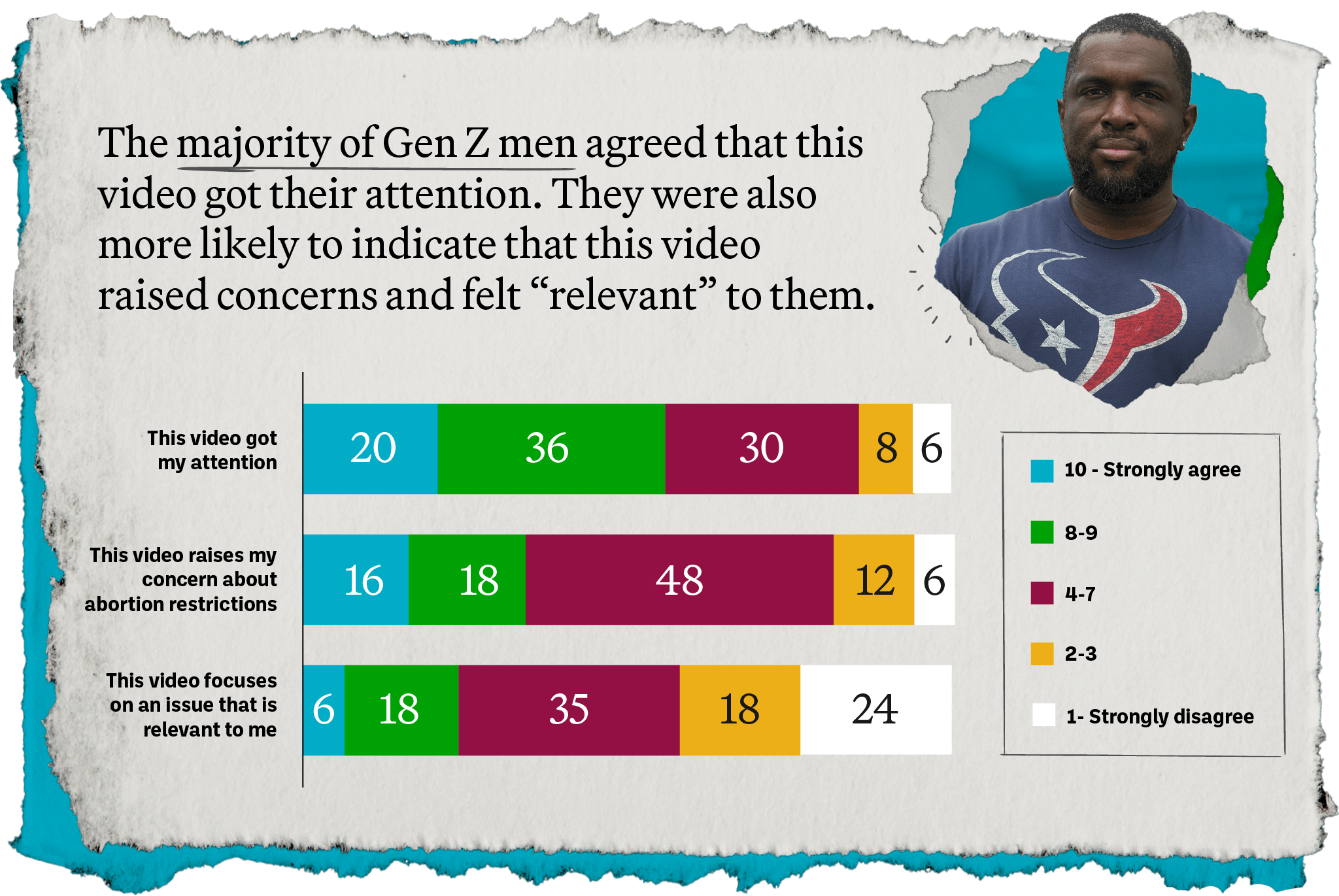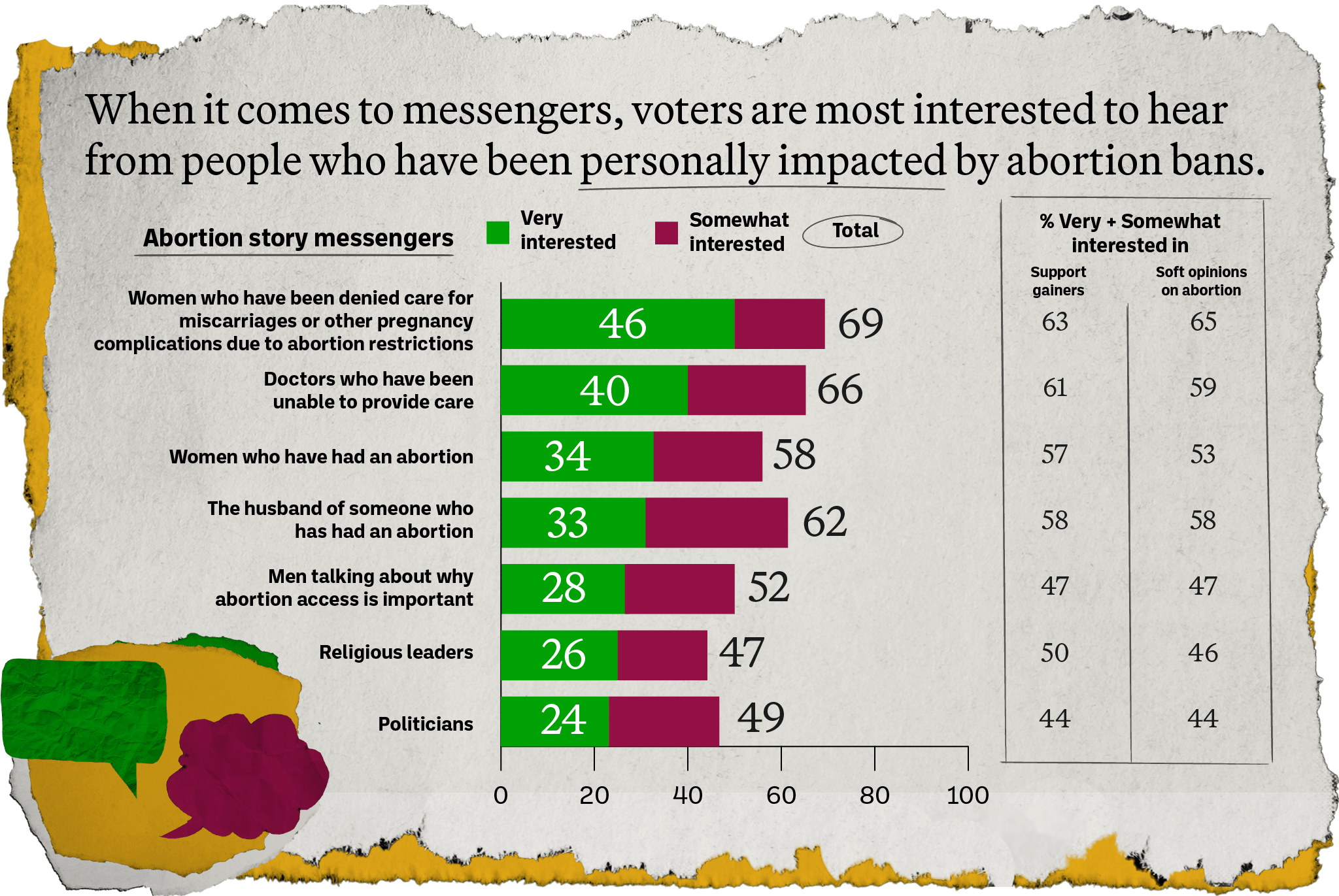The new abortion messengers
Since Roe v. Wade was overturned, states across the country enacted abortion bans and severe restrictions. Americans continue to care deeply about abortion—but millions are either unaware of this drastic change in access or believe it won’t affect them. What has the power to shift their perspective? The stories of people just like them.
Key Takeaway #1:
Personal stories are the key to people understanding that abortion restrictions are real and affecting people right now.
At a moment when many Americans are turning away from politics, personal stories about abortion still move them.
Audiences who hadn’t previously considered abortion a top concern said that after watching people impacted by abortion bans share their experiences, the issue felt personal and like it could affect someone they love.
The lesson to draw from this research: Abortion remains a defining issue for Americans—especially when they hear directly from people harmed by abortion bans.
Personal stories drove urgency and empathy.
After hearing personal abortion experiences, Americans were more likely to believe that abortion bans would harm their loved ones’ health and well-being.
People described the storytellers as “genuine,” “direct,” and “informative.” They often shared responses like, “It could have happened to me or someone I love.”
It could have happened to me. It could have happened to you. It could have happened to my best friend, my mother.
The result?
Audiences who heard these stories became 10 points more likely to support candidates who will protect abortion access, including a 16-point increase among Independents.

Key Takeaway #2:
Gen Z men are highly receptive to stories about abortion.
Much of the media conversation has focused on young men drifting to the right—but this research reveals something more complex.
Gen Z men may not list abortion among their top political priorities, yet when they encounter real abortion stories told by an impacted person, they’re listening.
In the video below, Hope Ngumezi shares the story of losing his wife, Porsha, under Texas’ abortion bans. Among Gen Z men, his message broke through where few others do: A majority said Hope got their attention.

And it isn’t just stories from other men that move them.
While stories from men about losing loved ones resonated deeply, Gen Z men also described women’s firsthand accounts of abortion bans and pregnancy as eye-opening and educational.
I feel like it was very important for my generation at the time to have the option of deciding whether or not to be a mother.
Personal stories inspire audiences to understand the world differently—especially among key groups like Gen Z men.
After hearing more about the personal impact of abortion bans, Gen Z men were significantly more likely to say abortion will matter “a great deal” when deciding which candidates to support in the future.
Key Takeaway #3:
People want to hear from people like them on abortion. Not politicians.
When it comes to abortion, the messenger matters.
People said they connect most with stories told by those directly affected by abortion bans and other restrictions—not by politicians or elected officials.
These stories move abortion from an abstract political debate to an urgent personal threat endangering real people. After hearing Megan’s story, shown below, 44% said it got their attention, and over one-third of Gen Z men said it raised their concerns about restrictions. Audiences said her story humanized the issue in a way other messages have not.
Audiences were especially moved by stories about the real consequences of abortion bans: doctors who were forced to stop practicing, women facing health crises, being forced to carry nonviable pregnancies to term, or even being criminalized for seeking care.
It’s coming from a professional in the subject, so it’s an interesting take that’s humanized and really lets us know how she felt about the topic and the law in place.
The takeaway?
People with lived experiences are far more persuasive than politicians.
Across political lines, respondents said—by a 34-point margin—that they would rather hear from people personally affected by abortion restrictions than from elected officials.

Stories like Ashley’s, Hope’s, DakotaRei’s, Megan’s, and Dr. Dennard’s are powerful.
Research shows personal stories about abortion bans build empathy and urgency, shifting the perspectives of key audiences—Gen Z men, Independents, and moderate pro-choice women—who play a pivotal role in shaping the national conversation.


